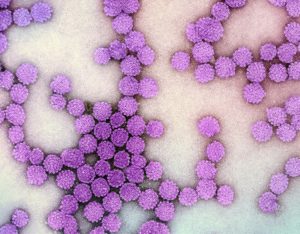While monogamy can reduce the risk of contracting sexually transmitted infections (STDs), it doesn’t guarantee complete protection. Understanding the limitations of monogamy and practicing safe sex are crucial for maintaining good sexual health in a committed relationship.
Monogamy and STDs
Even in a monogamous relationship, you can still be at risk for STDs. Here are some reasons why monogamy and STDs can still be a concern:
- Past Infections: If either partner had an STD before the relationship, it could still be present. Some STDs do not show symptoms for a long time.
- Unfaithfulness: If one partner is not faithful, they could bring an STD into the relationship.
- Hidden STDs: Some STDs, like HPV and herpes, can be present without showing symptoms.
- Misinformation: Many people think they are safe because they trust their partner. However, trust alone does not protect you from STDs.
Is Monogamy Safe from STDs?
So, is monogamy safe from STDs? The answer is not always. Here are some ways to protect yourself:
- Get Tested: Both partners should get tested for STDs before starting a sexual relationship. Regular testing helps catch any infections early.
- Communicate: Talk openly with your partner about your sexual health and history.
- Use Protection: Even in a monogamous relationship, using condoms can help reduce the risk of STDs.
- Stay Faithful: Both partners need to be committed to staying faithful to each other.
- Be Informed: Learn about STDs and how they can be transmitted.
Popular Medications for STDs
If you or your partner has an STD, medication can help. Here are some common medicines for STDs:
- Azithromycin: This medicine treats chlamydia and other infections.
- Ceftriaxone: Used for treating gonorrhoea.
- Penicillin: Effective for treating syphilis.
- Antiretroviral Drugs: These drugs help manage HIV.
- Acyclovir: Used to treat genital herpes.
Even in a monogamous relationship, it is important to take steps to protect yourself from sexually transmitted diseases. Getting tested, using protection, and staying informed are key ways to stay safe. Do not assume that monogamy alone will keep you safe from STDs. Communication and commitment are essential for a healthy and safe relationship.
Many people think that being in a monogamous relationship means they are completely safe from STDs. However, past infections, unfaithfulness, and hidden STDs can still pose a risk. By getting tested, using protection, and staying informed, you can help protect yourself and your partner. Remember, trust and communication are vital in any relationship.
FAQs
- Can you get an STD in a monogamous relationship?
Yes, if either partner had an STD before the relationship or if one partner is unfaithful. - What should we do to stay safe from STDs in a monogamous relationship?
Get tested, use protection, and communicate openly about your sexual health. - Why do some people still get STDs in monogamous relationships?
Hidden STDs, past infections, or unfaithfulness can all lead to STD transmission. - Is using condoms necessary in a monogamous relationship?
Yes, using condoms can help reduce the risk of STDs, especially in the beginning. - How often should we get tested for STDs?
It is a good idea to get tested before starting a sexual relationship and regularly thereafter, depending on your lifestyle and health.



